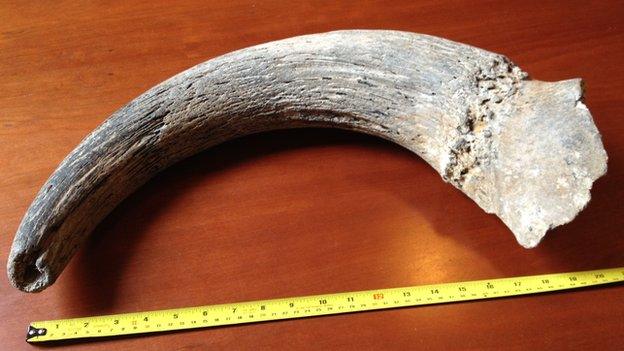Extinct cattle horn found by fisherman in Severn estuary
- Published
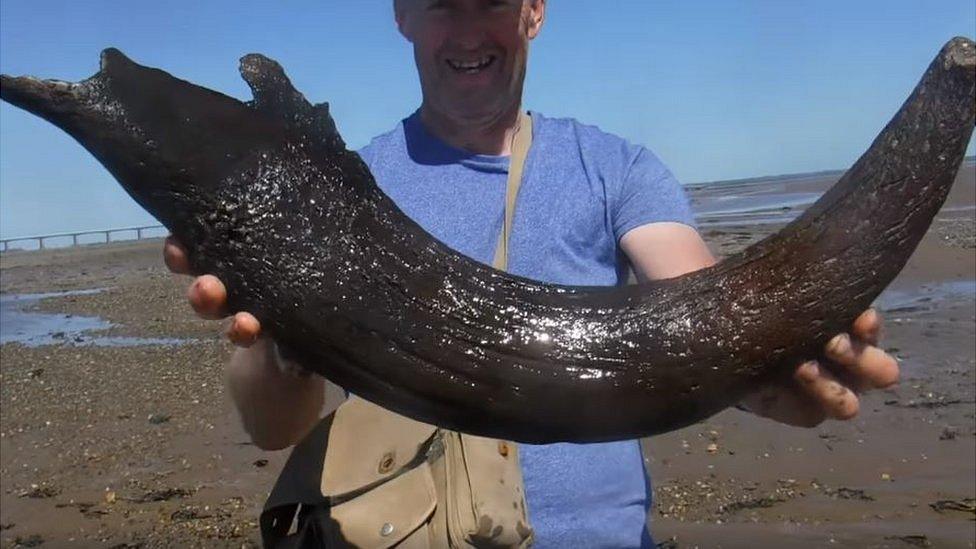
The 70cm (27in) aurochs horn was spotted by Martin and Richard Morgan on Monday, in the middle of the estuary
Two fishermen discovered a 3,500-year-old horn from an extinct cattle breed in the Severn estuary.
Brothers Martin and Richard Morgan were inspecting a site near the M4 Prince of Wales Bridge at low tide when they stumbled across the 3kg relic.
The 70cm (27in) projection belonged to an aurochs - 2m (6ft 6in) tall grazing cattle which once roamed England.
Mr Morgan, a lave net fisherman, said: "It's probably the most significant and impressive find we have ever made."
Prof Martin Bell, from Reading University, said: "It's clearly well-preserved and an exciting find."
'Substantial piece of horn'
The brothers, who are fourth generation black rock lave net fishermen, said they had been "living in hope" of finding something rare.
"We've walked this ground hundreds of times and my family have been fishing here for 100 years but we've found nothing of great significance, said Martin Morgan said.
On Monday, the pair saw part of the horn "sticking out of a bank," he said.
"We thought it was either wood or bone but I've never seen anything like it, it was a substantial piece of horn, he said.
"It was a chance in a million find and we weren't going to leave it there because it wouldn't be there the following tide and would be covered up for another 1,000 years."
The brothers have written to the Duke of Beaufort, who owns the estuary, to offer him their find but hope it will "ultimately end up in a museum".
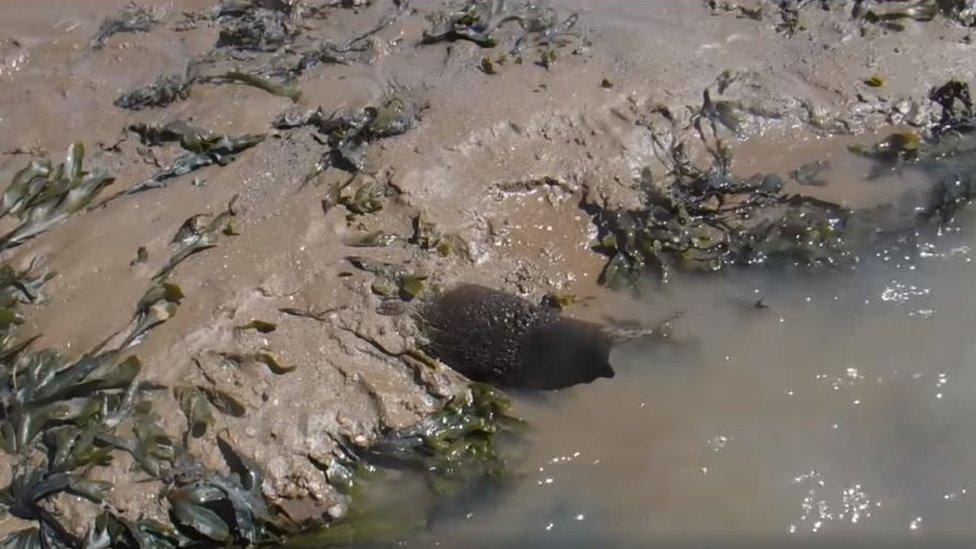
Martin and his brother Richard out inspecting the estuary at low tide when they stumbled across the 3kg horn
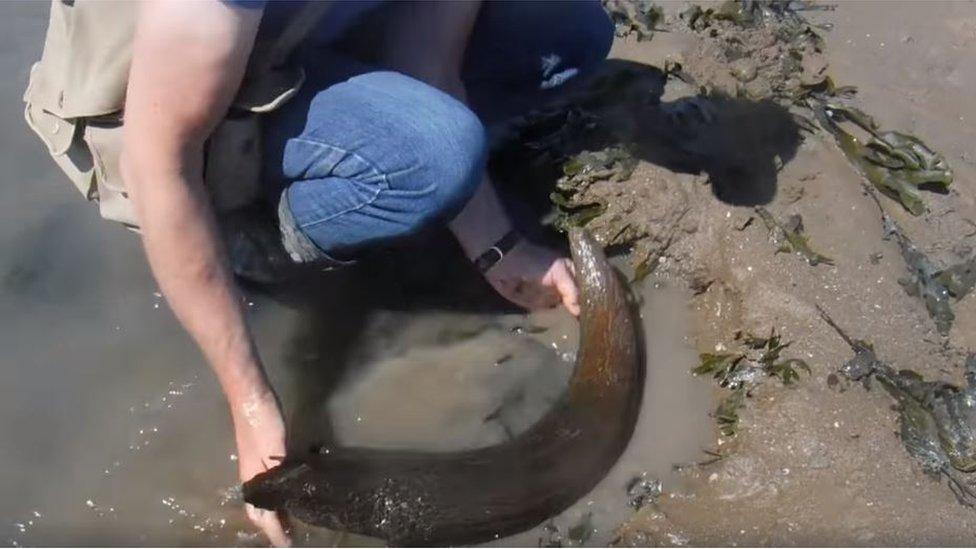
The brothers, who are fourth generation lave net fisherman, said they have been "living in hope" of finding something rare
Prof Bell, an archaeological scientist from the University of Reading, said the "exciting find" was in "really excellent condition".
"Aurochs have been extinct for 3,500 years so this horn is probably 5,000 to 6,000 years old," he said.
"It looks like it's from a fully grown adult and it's clearly well preserved so we're hoping to go and carbon date it, when I can travel again."
Aurochs were found in many parts of Great Britain.
Genetic studies have suggested most modern livestock are descended from cattle that arrived in Europe from the Neolithic Near East.
- Published20 May 2015
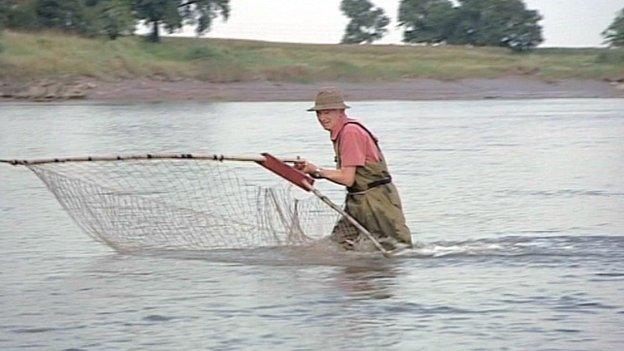
- Published17 March 2014
